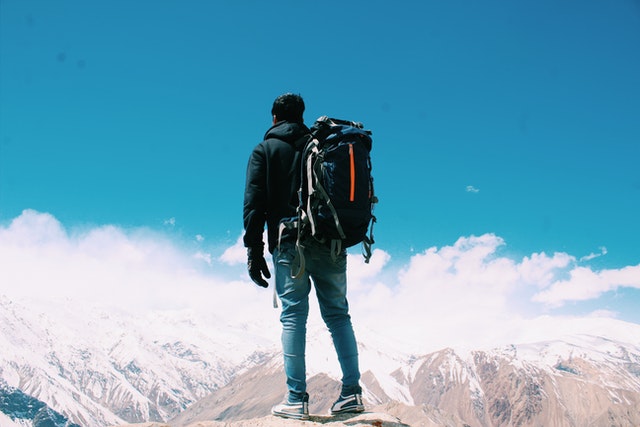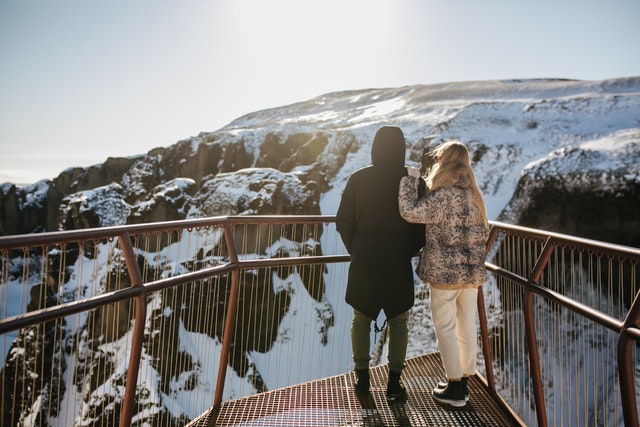
Find Out How To Prepare For High Altitude Vacation
If you’re going on a trip to high altitudes, it’s essential to know what to expect. You don’t want your vacation to be ruined by being sick! Luckily, there are plenty of things that you can do before your trip so that you’re prepared for any altitude-related issues that might arise. To help prepare yourself and make the most out of your journey, read on:
Get used to the altitude before you leave.
Before leaving for your high-altitude vacation, you must get used to the altitude. The best way to do this is by travelling somewhere in a higher-altitude location. If possible, stay at least two days before heading out on your journey so your body can adjust. If you are going camping or hiking, take it easy so that you don’t overexert yourself—it will make it easier for your body to adjust if you aren’t exhausted when you start climbing higher up mountains.
If possible, try sleeping at a higher elevation than where you usually sleep during these trips. You may also want to exercise at least once per day for several weeks before making any significant changes in elevation so that when it comes time for hiking and climbing at higher altitudes, your body won’t be too tired from lack of activity and sleep!
Read More: Hot Tent Camping: Best Way To Camp In Winter
Pack a first aid kit.
A first aid kit is a must. Include aspirin, non-aspirin pain relievers, bandages and gauze pads. Also, pack antiseptic wipes. A thermometer is essential if you’re travelling with children or elderly family members who may not be able to report symptoms of altitude sickness, such as nausea or headaches. Bring sunscreen, lip balm (to prevent chapped lips), insect repellent (mosquitoes can be fierce at higher altitudes), and other items that might come in handy during your trip—as long as they’re allowed through airport security!
You will also want to pack a first aid manual to learn how to treat common injuries like cuts and scrapes. You may not need it often, but it will ensure peace of mind if medical attention isn’t readily available when needed.
Drink plenty of water.
You should drink at least 2 litres of water per day. Ideally, you’ll want to drink about half your body weight in ounces (so if you weigh 150 lbs., that’s 75 oz.) every day. That is especially important when flying or hiking at high altitudes since it can take hours for the body to adjust and acclimate to the change in elevation.
It’s recommended that you drink water before you feel thirsty and keep drinking throughout the day until after the physical activity has ceased. It may also benefit travellers with respiratory illnesses such as asthma or emphysema and those who are pregnant or nursing young children (who tend not to tolerate dehydration well).
Wear sunscreen.
The sun is as intense at high altitudes as at sea level, so ensure you wear sunscreen daily. That is especially important if you plan on being outdoors and in the sun for long periods, like a day hike or a picnic near the mountains. Sunscreen protects your skin from sunburn, which can be painful and result in a nasty case of heat exhaustion (which we’ll get to later).
Sunscreens with an SPF rating of 50 or higher should be applied liberally to all exposed areas about 30 minutes before going outside. Be sure to reapply every 2 hours if you are active outdoors or any time after swimming or sweating excessively. You should also apply another layer after towel drying since water from your towel may have washed some of the lotions off your skin.
Invest in AT LEAST SPF 50
UV rays are dangerous and should always be avoided. UV rays can cause skin cancer, sunburn, premature aging and eye damage. They can also cause skin rashes, dryness and irritation.
So invest in at least SPF 50 sunscreen to protect yourself from the sun’s harmful ultraviolet rays while enjoying your vacation!
Try some local cuisine.
There’s more to a restaurant than its menu. The ambiance, decor and atmosphere are just as important as the food’s quality. While you’re on your vacation, be sure to try some local cuisine.
If there’s one thing that can be said about any country you visit, it’s that they have their unique take on beer. Take this opportunity to learn about new flavours and ingredients by sampling some local brews at your favourite bar or pub.
The same goes for coffee! As long as it isn’t instant coffee (which should be avoided), almost any type of bean will taste better when roasted properly by someone who knows what they’re doing.”
Bring a travel companion who’s used to the altitude.
You may want to bring along a travel companion who has experienced the altitude before and can help you adjust. If you don’t have a travel companion, look for medical professionals in your local area to ask for help. You can also turn to the regional tourist offices for assistance, as they often have pamphlets on preparing for high-altitude trips.
Take a day trip from where you’re staying to acclimate.
- Take a day trip from where you’re staying to acclimate.
- Go to a lower altitude.
- Take it slow! Please don’t overdo it; don’t rush, and give yourself plenty of rest time between activities (like hiking). You may even want to spend your first day in the city just walking around and getting used to the increased oxygen levels.
- Don’t go alone if possible—having someone there with you can help ensure that you stay safe and get back home safely at night, especially if the sun has already set by the time you start your hike or climb down from the mountain. And don’t forget: never hike alone when mountains are involved! Not only do mountains pose an inherent danger due to falling rocks or avalanches, but they also increase risk because they can cause hypothermia due to cold temperatures—hazardous at high altitudes. After all, there’s less oxygen available for respiration than at lower elevations like sea level (about 20% less).
Know what you’re getting yourself into before you go!
After you’ve booked your trip, it’s time to do some research. You’ll want to know what to expect from the local cuisine, weather, culture and language. That will help you plan the food you should bring along with you on your trip. It’ll also help you know how well-prepared your body is for high-altitude conditions before going so that nothing catches you off guard.
That goes beyond just knowing how their food tastes—it also means understanding what types of foods are available in that region and when they’re available (e.g., during certain seasons). If possible, talk with someone who lives there about what kind of foods they eat most often and when they eat them most frequently. And don’t forget other factors like religious customs or dietary restrictions!
Last Words
If you take these steps, you’ll be better prepared than most to handle any altitude-related challenges. You may even find yourself enjoying the experience!
– Written By Boyan Minchev
